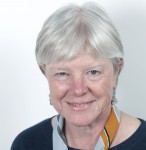 LSE’s Department of Media and Communications celebrates its 20th anniversary this year, and is marking the occasion with the upcoming Media Futures Conference on 15-16 June. Here Professor Emerita Robin Mansell recounts the Department’s journey from its beginnings as an interdepartmental programme, to a department with more than 20 full time faculty.
LSE’s Department of Media and Communications celebrates its 20th anniversary this year, and is marking the occasion with the upcoming Media Futures Conference on 15-16 June. Here Professor Emerita Robin Mansell recounts the Department’s journey from its beginnings as an interdepartmental programme, to a department with more than 20 full time faculty.
I joined the LSE’s Interdepartmental Programme on Media and Communications (Media@LSE) in 2001 along with Nick Couldry. Media@LSE already was active in research and teaching led by Sonia Livingstone and Margaret Scammell in Social Psychology, with Roger Silverstone and Terhi Rantanen in Sociology.
I had worked with Roger at Sussex University where we co-edited a book Communication by Design: The Politics of Information and Communication Technologies in 1996. We had signalled the crucial importance of analysing the commodification of ‘new media’ technologies; of examining how participation in electronic cultures and structures was becoming a precondition for agency, either in compliance or in opposition. We emphasised the need for critical inquiry into the principal contradictions and the dialectical processes of social, cultural, political and economic change, both historically and in contemporary times. Roger was an inspiring colleague. He joined LSE in 1998 and when a chair on the Internet and New Media was advertised I applied; to my amazement I was hired in the Sociology Department.
LSE’s Director at the time, Tony Giddens, was encouraging the establishment of a new department of media and communications. It was an exciting time: we could set the direction for research and teaching. Proposals were written, negotiations ensued and in 2003 the new Department was established with Roger Silverstone as its first Head.
From then…
How did we position ourselves in a complex and interdisciplinary media and communications field? We said initially that our ambition was to ‘undertake research at the interface between social and technological change’. Despite this potentially huge scope, we settled on citizenship, globalisation, literacies, ethics and policy, as our themes. We had around 160 MSc students on six MSc programmes. We were committed to interdisciplinarity and multi-method approaches. A year or so later our self-description would read –
‘we critically address the key issues in the emerging digital world. Our research encompasses the local, the national, and the global and it develops theory and policy-related insights. … We give particular attention to the role of media and older and newer technologies in mediating our understanding of the world around us and its changing cultural, economic, political, and social features’.
Along the way, Polis, our journalism and society think tank led by Charlie Beckett , was set up thanks to Roger Silverstone’s commitment to engagement theoretically and practically with UK and world news media and their responsibilities. Also set up and led by Damian Tambini was the Media Policy Project (MPP). This boosted our research influence and impact with policy makers, the third sector and businesses nationally, in the European Union and beyond. This was long before research ‘impact’ received the strong emphasis it now has. The MPP was later folded into the Media@LSE blog platform to support cross-department research with students and academic staff on the vital role of media and communications in today’s society.
… to now
In 2023 we celebrate our 20th year! Among our 21 full time academic staff, a Distinguished Policy Fellow, a Professor of Practice, and four LSE fellows we have diverse disciplinary backgrounds – cultural studies, history and feminist studies, linguistics, politics, political economy, sociology, social psychology, and science and technology studies). Academic staff are hugely supported by a wonderful team of professional services staff and research or policy fellows. We have a thriving doctoral programme.
Today, we say that we conduct ‘critical, empirical and engaged research into the crucial role of media and communications in contemporary society. … We bring to multiple agendas a deep understanding of changes in the media and communication environment which shape and are shaped by complex socio-technical, political-economic, cultural and historical developments’. Our current themes are – Media culture and identities, Media participation and politics, Communication histories and futures, and Communication, technology, rights and justice. Ethical concerns with the norms of democracy, equality and inclusiveness, quality of life and recognition of ‘the other’, cut across these themes.
Formal descriptors don’t tell the story of what’s involved in building a new Department. They don’t convey the amazing contributions and commitment of all our staff. Nor do they provide a peek into ups and downs along the way. We wanted to have a research centre and bid unsuccessfully on a couple of occasions. We wanted an undergraduate degree programme: we do not have one, though we now have one course. Our proposals would be rejected; a symptom of lingering questions about just what it is that people affiliating with ‘media and communications’ actually do – a question I have been asked countless times!
Having served several times as head of our Department, probably the biggest challenges were (and are) how to ensure openness to new topics, how to balance work and life with pressures to do more, how to balance teaching workloads equitably, how to support students whose lives are upended by crises, and how to embed equality, diversity and inclusion in the Department’s ethos and practise. My fervent hope is that the Department receives the resources it needs to alleviate some of the pressures. I do know that colleagues will fight for a teaching and research environment that supports them in making their hugely valuable academic and outward oriented contributions. As Roger Silverstone so often said, ‘It all is about power, of course. In the end’.
We set out to ensure that we would not over-privilege the media or technology in our research and teaching and that we would do critical research that seeks to change the world, not just study it. It has been a huge privilege for me to be part of our 20-year journey; my only regret being that I could have done more and, now as Professor Emerita, I can’t wind back time to repair my mistakes!
This post represents the views of the author and not the position of the Media@LSE blog nor of the London School of Economics and Political Science.






WHAT A GREAT TRIP DOWN MEMORY LANE. MEDIA@LSE BRINGS BACK SO MANY HAPPY MEMORIES FOR ME – WONDERFUL COLLEAGUES, EXCELLENT LEVEL OF ACADEMIC INCLUSION, MEDIA SCHOLARS FROM ALL OVER THE WORLD – ALL OF THIS, MANY YEARS LATER, INSPIRED ME TO EDIT THE BOOK “THE ANTHROPOCENE IN GLOBAL MEDIA: NEUTRALIZING THE RISK [ROUTLEDGE 2021] EVERY TIME I SEE A PROBLEM, MY FIRST THOUGHT IS “WHAT ARE THE MEDIA SAYING ABOUT THIS? NEVER A DULL MOMENT.
LOVE TO ALL, LESLIE
PS, I have no idea what “http://gravatar.com/leslie203” is all about – yet another example of confusion for the emeritus community. WILL WE ALL HAVE TO CHANGE OUR EMAIL ADDRESSES?